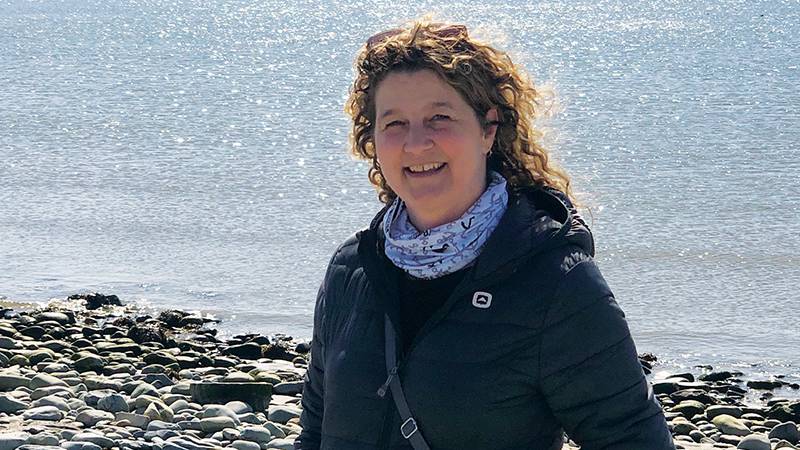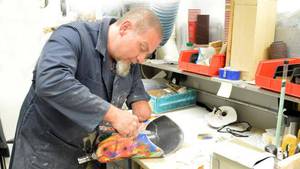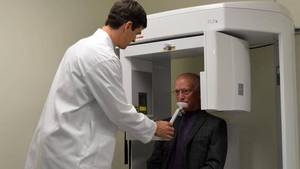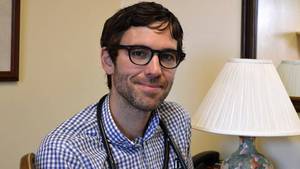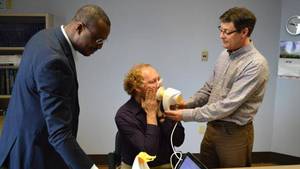It was on a return flight to Halifax when Christa Webber first suspected something was amiss. In July 2017, she and some friends were returning from a concert weekend in New York.
“It felt like I couldn’t breathe,” she recalls. “I wasn’t quite sure what was happening. I thought maybe it was just the excitement of getting home.”
When she got home and went for tests at the Dartmouth General Hospital, Christa was told she had fluid building in her lungs. The real problem: she was in heart failure.
“I had dilated cardiomyopathy — at age 43.”
She was referred to the Cardiac Transplant and Advanced Heart Failure Clinic at the QEII Health Sciences Centre in Halifax and, in early 2020, went on a waiting list for a new heart. Her O blood type meant she could only accept a heart from an O donor.
“I looked it up on the National Organ Waitlist,” she says. “The average wait time for an O heart was 497 days.”
For patients waiting for a transplant, timing is crucial.
On Jan. 18, 2021, Nova Scotia became the first jurisdiction in North America to adopt a “deemed consent” system for the donation of organs and tissues. While people can still opt out, the Nova Scotia Human Organ and Tissue Donation Act will help Nova Scotians waiting for a transplant get one sooner.
Changing the law is just the beginning of the process, says Dr. Stephen Beed, medical director of the Nova Scotia Organ Donation Program and the lead on a study by the Legislative Evaluation: Assessment of Deceased Donation Reform (LEADDR).
In July 2020, Health Canada invested $1.1 million in the study to gather evidence to inform legislation and to evaluate the impact of implementation.
“There’s been a huge transformation happening in the background to support the new law,” says Dr. Beed. “If this new law becomes part of a system change, then you have reason to believe we are moving toward a better place.”
While the legislation took effect in January, Dr. Beed’s team has spent the past 18 months preparing for the new reality. For example, donation-physician roles, in which critical care physicians are recruited to serve as local resources for donation-related issues, have been put in place in several zones around the province. This model has proven effective in other jurisdictions.
“We know from other very successful programs, such as in Spain, that front-line critical care physicians can profoundly influence donation success,” says Dr. Beed.
More organ donation co-ordinators have been recruited, education for front-line healthcare providers has been revamped and a family support liaison has been put in place.
“With assistance from Nova Scotia Health and Health Canada, we’ve become quite involved with research on donation-related issues,” Dr. Beed adds. “We’ve also worked with our IT people to develop a database that will be part of a new donor-audit tool.”
Two years ago, the team began site-based education and public awareness campaigns at regional hospitals.
“We wanted to raise the level of public awareness on the importance of organ and tissue donation,” says Cynthia Isenor, health services director for the QEII’s Critical Care Program.
“This is not something that changes overnight. Knowledge about donation, and how to integrate that into end-of-life care, becomes an art over time. It’s about both honouring the individual who is, unfortunately, dying, while also incorporating donation into the conversations with family members.”
The impact of organ and tissue donation is immense. A single individual can potentially donate two lungs, a heart, two kidneys, a pancreas, liver and small bowel.
“You can save eight lives by donating your organs,” Dr. Beed points out. “A tissue donor can provide up to 80 tissue grafts, so that can be life-enhancing for a great many people.”
Many donor families have expressed that, when coping with the loss of a loved one, the thought of something positive coming out of the situation is often an important part of their healing.
In late January 2020, Christa was told to have a bag packed and be ready to go on short notice. On Feb. 15, 2020, the call came. A donor heart was available and the transplant could take place the following day at the QEII, the specialized care centre for organ transplantation in Atlantic Canada.
“Nothing really prepares you for that,” she says. “I couldn’t stop thinking about the donor and their family.”
Now, more than a year later, Christa is climbing stairs, carrying her own groceries and even dancing. She was on the waiting list for just 19 days, but she is aware of how fortunate she was and is 100 per cent supportive of the new legislation.
“It’s going to save countless lives,” she says. “I don’t judge anyone who chooses not to donate, but I don’t think I would have survived for 497 days.”

